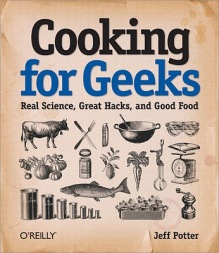
I first posted this thought at http://www.inspireafire.com/the-law-is-gentle/
Martin Luther famously said that God’s Law serves three purposes. First, it acts as a curb to prevent violent outbursts of sin. Think of a curb along a road, or a curb bit in a horse’s mouth. The law is like that barrier saying “you can come this far… and no farther.”
 Second, the law acts as a mirror. When we compare ourselves to the perfection demanded by God’s law – perfection not just in outward action but in thought and desire, too – then we begin to see ourselves in a new and unflattering light. Like a little league star tested against the professionals, we suddenly realize we might not be such hot stuff after all.
Second, the law acts as a mirror. When we compare ourselves to the perfection demanded by God’s law – perfection not just in outward action but in thought and desire, too – then we begin to see ourselves in a new and unflattering light. Like a little league star tested against the professionals, we suddenly realize we might not be such hot stuff after all.
Finally, the law acts as a guide. Although we can never attain perfection on our own, we know from the Law what it looks like. We know what to aspire to. We know what to ask God to help us achieve.
And God does help us.
So often when we think of the Law we think of the rules and regulations. We may think of these curbs, mirrors, and guides. We may think of how far we fall short. But today, I’m also thinking of Jesus, weeping over Jerusalem with the words “How often I wanted to gather your children together as a hen gathers her chicks under her wings…” (Matthew 23:37).
All of the law’s harshness can be summarized in one gentle command: Love the Lord your God with all your heart, soul, mind, and strength (Mark 12:30).
Like chicks under a protective wing, we are called to press against Jesus. Do not beat against the curb, distress over the mirror, or try in vain to follow the guide. There is another way.
 Love God.
Love God.
That’s it. Love God.
Pursue Him. Run after Him. Seek Him. Love Him.
It sounds so simple, but there’s a catch. We have to want it. We have to want God more than anything else. More than any other relationship, more than any other passion, more than any other pursuit.
It is a gentle command. Which means it can be so easy to ignore. God will pursue us, but He will not force us to obey. We can choose to love so many other things. And I have found through my own wandering ways that when other loves begin to supersede the First Love, life begins to unravel in devastating ways.
The greatest command, Jesus said, is to love God. That one comes first.
Not second. Not somewhere down the line.
First.
 Are you struggling? With loving others or loving yourself? With sin you can’t shake? With broken relationships, broken dreams, broken hope?
Are you struggling? With loving others or loving yourself? With sin you can’t shake? With broken relationships, broken dreams, broken hope?
Refocus. On. God.
Seek first His kingdom and His righteousness and all these other things will be given to you. “You shall seek me and find me when you seek me with all your heart,” saith the Lord (Jeremiah 29:13).
It is not a harsh command, but it is the most important one.
Love God.

 Not so very long ago, a friend lent me a book called Cooking for Geeks. This book was intended to explain, in precise and empirical language that a scientist like me could appreciate, exactly how to do amazing things in the kitchen. Like fry an egg without causing an explosion.
Not so very long ago, a friend lent me a book called Cooking for Geeks. This book was intended to explain, in precise and empirical language that a scientist like me could appreciate, exactly how to do amazing things in the kitchen. Like fry an egg without causing an explosion.